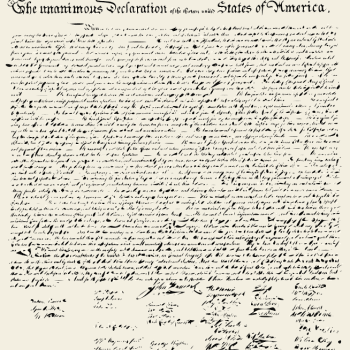Thanks to our constitutional guarantees, Americans have much more freedom of speech than other countries do. This shows up in the different libel laws of different countries. But now, thanks to international trade agreements such as NAFTA, Americans are being sued for violating other country’s Alibel laws. From American Journalists Silenced in Foreign Lands, which tells about some specific cases:
NAFTA was signed into law in 1994 eliminating most trade barriers. However, an unintended consequence of NAFTA was the ability for foreign individuals and entities to sue American journalists and authors on libel and defamation suits much harder to adjudicate in America.
Under Canadian law [currently being invoked against American investigative reporter Paul Williams], once an accusation of libel is made, the respondent must prove they are innocent rather than the plaintiff proving guilt. . . .
Foreign citizens or entities suing American journalists in foreign courts for libel and defamation is a growing trend, and as a result Congress is stepping into this issue to fortify free speech protection.
US Citizen, Rachel Ehrenfeld, author, and lecturer was also sued for libel in a British court over her controversial book, Funding Evil. She counter sued stating that under American defamation laws her book was not libelous, but her case was dismissed in a New York court. As a result of her case, theNew York legislature passed a law called Rachel’s Law, protecting New York citizens against libel judgements not recognized under American libel jurisprudence.
Senator Arlen Spector (D-PA), alarmed at the increase of libel suits against the American press, has sponsored The Free Speech Protection Act.
Here is a bipartisan issue that Americans should be able to rally around. The relationship between our laws and international laws is going to be a bigger and bigger issue in this age of globalization. International treaties generally trump local and national ordinances. Some people–both those who like the prospect and those who are horrified at the thought–see international law as making possible a de facto world government at the expense of national sovereignty. What do you think?
HT: Carl















